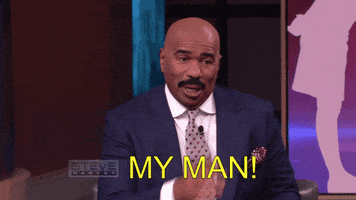- Sep 13, 2002
- 99,155
- 208,000
- 113
What a doosh.
Secretary of State Marco Rubio says he won’t attend the G20 summit in Johannesburg later this month, saying South Africa’s support for DEI and climate change policies are “very bad things.”
“I will NOT attend the G20 summit,” Rubio wrote in a post on X, saying, “South Africa is doing very bad things. Expropriating private property. Using G20 to promote ‘solidarity, equality, & sustainability.’ In other words: DEI and climate change.”
Relations between the U.S. and South Africa have been strained by threats from President Trump to cut off funding to the country in response to new land expropriation laws.
The controversial Expropriation Act, signed in January, allows the South African state to take land, much of which is owned by whites, without compensation.
It replaces a 1975 law which obliged the state to pay them.
One of the legacies of South Africa’s racist apartheid system is that white South Africans still own almost three-quarters of farm land, despite being only 7 percent of the population.
The country’s foreign ministry said the expropriation legislation was no different than land acquisition laws in other countries.
In a wild series of posts on Truth Social on Sunday, Trump claimed that “certain classes of people” were being treated “very badly” by the changes, and threatened to cut off all future funding in response.
South Africa-born “first buddy” Elon Musk has also weighed in with unfounded conspiracy theories about the law, and by appearing to endorse a message about race-based emigration from the country.
South Africa’s President Cyril Ramaphosa defended the law in a post on X on Monday, and said that the country’s only funding from the U.S. is for programs tackling HIV and AIDS.
“South Africa, like the United States of America and other countries, has always had expropriation laws that balance the need for public usage of land and the protection of rights of property owners,” he wrote.
This feud may be familiar to observers of Trump’s first term as president, when he provoked a furious reaction in South Africa in 2018 for tweeting that he was closely studying the “large scale killing of farmers”.
Marco Rubio Pulls Out of G20 Summit Over ‘Very Bad’ Focus on DEI and Climate
Secretary of State Marco Rubio says he won’t attend the G20 summit in Johannesburg later this month, saying South Africa’s support for DEI and climate change policies are “very bad things.”
“I will NOT attend the G20 summit,” Rubio wrote in a post on X, saying, “South Africa is doing very bad things. Expropriating private property. Using G20 to promote ‘solidarity, equality, & sustainability.’ In other words: DEI and climate change.”
Relations between the U.S. and South Africa have been strained by threats from President Trump to cut off funding to the country in response to new land expropriation laws.
The controversial Expropriation Act, signed in January, allows the South African state to take land, much of which is owned by whites, without compensation.
It replaces a 1975 law which obliged the state to pay them.
One of the legacies of South Africa’s racist apartheid system is that white South Africans still own almost three-quarters of farm land, despite being only 7 percent of the population.
The country’s foreign ministry said the expropriation legislation was no different than land acquisition laws in other countries.
In a wild series of posts on Truth Social on Sunday, Trump claimed that “certain classes of people” were being treated “very badly” by the changes, and threatened to cut off all future funding in response.
South Africa-born “first buddy” Elon Musk has also weighed in with unfounded conspiracy theories about the law, and by appearing to endorse a message about race-based emigration from the country.
South Africa’s President Cyril Ramaphosa defended the law in a post on X on Monday, and said that the country’s only funding from the U.S. is for programs tackling HIV and AIDS.
“South Africa, like the United States of America and other countries, has always had expropriation laws that balance the need for public usage of land and the protection of rights of property owners,” he wrote.
This feud may be familiar to observers of Trump’s first term as president, when he provoked a furious reaction in South Africa in 2018 for tweeting that he was closely studying the “large scale killing of farmers”.

